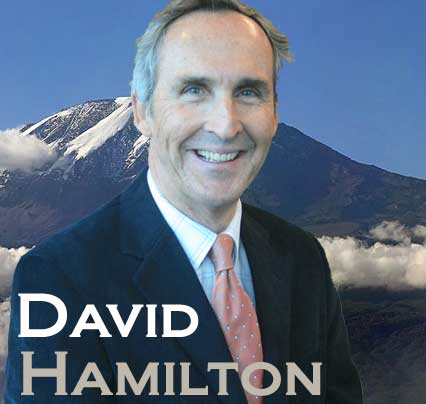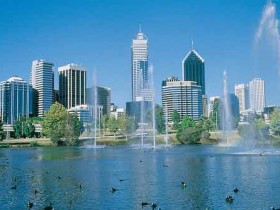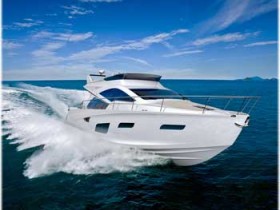
A mzungu Lenana School old boy awakens colonial passions in a Kip exclusive interview. He takes no prisoners in a candid interview going down memory lane. Have Kenyans been bamboozled in their history classes or has David Hamilton got it all wrong?
Kip: Jambo Daudi
David: Jambo bwana. Habari yako?
Kip: Mzuri sana
Born and Raised
Kip: Where were you born and raised?
David: I was born in Arusha,Tanzania. My early years were a bit like a nomad’s life because after only 2 years my Dad got a job as a ‘bwana shamba’ on a sisal estate near Voi in Kenya, so we moved to a place called Mwatate which is not far from the Taita Hills.
In those days the bush was teeming with big game and my Dad quite often had to run for his life to find the nearest tree and get away from an irritated rhino or worse, buffalo!
After about 5 years we moved back to Tanzania, where I went to various primary schools and finally to the Duke of York School (Lenana School) in Nairobi for my high school education.
Lenana School Alumni
Kip: How would you describe your time at the Duke of York School (DUKO)?
David: Life at DUKO was lots of fun and sadly, in my case, very little studying! I was a boarder in Delamere House and the boys were made up about 60-40 Wazungu/African, so it was pretty evenly divided.
One of my rafikis was Rick Anderson who now runs the Nairobi Giraffe Sanctuary. Rick had only recently arrived from the US back then and so was treated as a bit of a foreigner with his Yankee accent!! But Rick soon became popular with his sporting accomplishments and he had a very attractive mother who used to come up to school in a Chevrolet convertible and all the boys would stare open mouthed at such a beauty sitting in this great big white American car!
Another friend was Phillip Leakey who was a bit of a character to say the least! When it came exam time he had to sit an oral German exam and decided he would pretend to ‘break’ his arm so that the examiner would hopefully ask him questions about his bandaged arm and sure enough, he did! Needless to say, Phil passed!
My other great mate was William (Bill) Okwirry, who was also a boarder in Delamere House. Bill lived in Kisumu and was a fantastic rugby player. He was also one of the funniest guys I’ve ever met and we used to have a lot of laughs together. Some of the teachers would get very frustrated with his antics and he spent a fair bit of time in detention or outside the headmaster’s office waiting to receive his punishment!
Migrating to Perth
Kip: With the benefit of hindsight, how did the decision to come to Perth impact your life?
David: I came to Perth when I was 19 because one of my schoolmates, Joff Start, was here and he wrote to me and told me how fantastic it was, open spaces, nice weather and a bit like Kenya.
Of course when I arrived in Perth I didn’t think it was anything like Kenya but I definitely did see the attraction and also there were so many opportunities to do well here.
I guess the overall impact on my life is that I now realise how clever I was to decide to come here in the first place because I think we are all so lucky to be living in such a wonderful, safe and economically sound country where everyone is treated with respect and as equals and where we don’t tolerate racial or religious hatred. Anyone can make a go of their lives and become successful and that is a massively positive thing because there just aren’t that many countries in the world where it’s possible to do that any more.
Kip: How many of your DUKO friends ended up in Perth? Why Perth?
David: I am aware of at least 8 DUKO boys who were at school with me and who came to WA, which is pretty amazing. I think the reason was that we all came from Africa and were not used to the cold, grey skies of Europe and craved wide open spaces with warmth, nice beaches and lots of bush, so here was a fairly obvious choice I guess.
Kip: What cultural challenges did you face as a mzungu migrant from Kenya?
David: The biggest obstacle I faced was trying to understand this strange Aussie accent. One day my landlady asked me if I’d been to work ‘to die’ which I thought was a really weird question but eventually we worked out that she was asking whether I’d been to work ‘today’! There were lots of confused conversations in the first few months after I arrived here, until I got ‘tuned in’ to the Aussie accent!
Also, the local habit of being asked to a BBQ for example, then being expected to bring your own food and beer! The young Aussie guys were generally much noisier than we Africans and were less polite. We would always stand up if a stranger walked into the room and shake their hands etc, whereas the Aussie guys never bothered, they wouldn’t dream of opening a car door for a lady or their girlfriend, so there were plenty of cultural shocks when we first came here from Kenya!
Thoughts on Kenya
Kip: Do you ever go back to Kenya? What are your thoughts on Kenya from a now, outsider perspective?
David: Yes, I have been back a couple of times and the most impacting elements to hit me are the population explosion and the degradation and dilapidation of the towns and cities, including Nairobi. Nowadays there is a sea of humanity walking in all the towns and cities and many of the public buildings and roads and parks don’t look as if they’ve had any maintenance done for years and years.
Having said that, I also understand that there are many social issues in modern day Kenya, notably high unemployment and a lack of funding to keep the infrastructure maintained and repaired. If for example Kenya had a low unemployment rate of say 5%, imagine the taxable income that the government would be able to use to service and build the infrastructure of the country. That is, providing that money is used for the benefit of the people and not channelled into the wrong pockets!
Advertising Executive
Kip: Talking of putting something in the pocket, what do you do for living?
David: I’ve been working in the advertising industry for the past 10 years and my present role is to manage the Western Australian Government’s Non-Campaign contract. This involves producing, booking and sending all non-campaign government advertisements to the media.
I work with a team of 6 people and we operate the advertising for all government agencies who need to create recruitment advertisements, tender notices or public notices.
Kip: Given your advertising background, what advice would you give to the team behind the Kenyans in Perth (Kip) website?
David: I can see a free consultation coming on here!!
First make sure you really understand what you are trying to achieve with this website, who your target audience is and what they want to extract from such a website. Given that you seem to have distinctly different market segments (the Kenya/overseas audience) and the local (Western Australian) audience, their needs are very different and this can actually challenge you a fair bit because you probably can’t be all things to all people.
Kip: You worked at the Chamber of Commerce and Industry. What did you do? How can such organisations be of use to Kenyans in Perth?
David: Yes, I did work for the CCI in their marketing department for quite a few years as a Membership Officer. The CCI is a non-government employer body that represents the business interests of small, medium and big business in WA.
They also provide networking opportunities where business operators can meet other contacts. These can be potential business partners, suppliers or clients and so CCI functions are very useful to small business operators to help build their businesses. Any Kenyan who is domiciled in WA and operating his or her own business will find some of the CCI services very useful indeed.
Kip: Talking of networking, what practical steps can a new migrant in Australia take to build contacts and get ahead in the corporate world?
David: There are a few basic rules that apply to working in the business community.
- Always be early or at least on time for a business engagement
- Always respond promptly to any business communication, whether that is by email, invitation, facebook, twitter or any other current form of communication tool. It is considered rude to ignore or overly delay responding to a request and remember, first impressions are terribly important!
- Don’t be afraid to follow up on your communications, if you are seeking information and you don’t hear back, press your point by communicating again, most people will get the message and respond
- Politeness is easy to apply when dealing with people, even those who may not impress you very much, so always be polite but persistent!
- If you are required to supply a service or a product, ensure you respond with it expediently and efficiently, don’t keep your customer waiting unnecessarily – remember good impressions last, but so do bad ones!
Mau Mau Memory Lane
Kip: Nice. You grew up in a newly independent Kenya. Let’s take a walk down memory lane. What did you, for instance, think of the Mau Mau?
David:When the Emergency or Mau Mau started I was 4 years old and we were living down near Voi, so a long way from where all the activity was happening like Fort Hall for instance. I know the first mzungu to be murdered was a woman near Thika and that was on October 3 1952, but there were only ever a total of 32 whites killed during the Mau Mau uprising (unlike what Kenyans have been made to believe) and yet something like 25,000 African Kenyans were murdered by the terrorists!
A further 90,000 Africans were incarcerated by the British forces and there are now stories coming to light that many were tortured and killed by the British Expeditionary Forces, a terrible legacy.
In any event, the ones to suffer the most during this uprising were the African villagers and many were frightened into joining the Mau Mau and had to take part in really terrible oaths or suffer losing their and their families lives.
Kip: There is an ongoing Mau Mau compensation claim against the British Government. What’s your take on it?
David:Given the stories that are coming out now I don’t think there is any doubt that they should be compensated, definitely.
But if it can been proven that Kenyatta’s government purloined compensation monies paid out by the Brits as recompense to the suffering of the old freedom fighters, then they have a very strong case to have that compensation repaid by suing the present Kibaki government.
I personally don’t think they have a strong case to sue the Brits for the deprivation they experienced whilst in detention at the time, given that compensation was paid out for that very purpose. That would in effect be saying that because all that money didn’t reach its intended target, through no fault of Britain, they want Britain to pay up a second time! They can’t have it both ways but should concentrate through the international courts to convince the present Kenyan government to hand over the money!
Kip: Your statements will surely ruffle some feathers, calling the Mau Mau terrorists on the eve of Kenyan Mashujaa (Heroes) Day.
Yesterday’s terrorists are today’s freedom fighters. One of Kenyan heroes, Dedan Kimathi was considered to be the most dangerous ‘terrorist’ in 1953 and was responsible for carrying out some of the more horrendous oaths and murders of his fellow Kikuyu who were not supporting the Mau Mau. One of his methods of killing male dissenters was to cut off their manhood and stuff the whole lot in the victim’s mouth. They died from loss of blood and asphyxiation. Interestingly enough, he was finally captured on October 21, 1956…my birthday! Today, there is a monument of him in Nairobi!
Mashujaa Day (originally Kenyatta Day) does seem to be igniting a degree of dissention around Kenya and this is probably not the purpose of holding such a celebration in the first place nor does it suggest that everyone clearly understands what the day is actually about.
Kip: What is your understanding of the day (Mashujaa Day)?
David:It is important that every sovereign nation celebrates its history because proceeding generations must not forget how they got to enjoy the fruits of their labours, much of which can be attributed to their forefathers’ struggles.
However, issues relating to land ownership, for example cannot not be addressed effectively by staging protests or holding rallies on Mashujaa Day. Clearly such issues are important to a section of the community and should be addressed accordingly, however, public rallies, violence and general upheaval by some individuals or groups often send the wrong messages to the population at large and don’t result in positive outcomes.
David:A national day has to be a good thing so long as people know what it’s about so that they can get into the spirit of their country’s successes and heroes on the day.
Lifestyle and Fun
Kip: Let’s change gears here, shall we? What do you do for fun?
David:Despite my vast age, I do like to keep fit and am a bit of an adventure animal! I regularly go overseas and trek or climb mountains, for example I’ve climbed Mt Kilimanjaro (a must!) and trekked the Kokoda Track in Papua New Guinea as well as climbing Mt Rinjani in Indonesia and Mt Ramalau in East Timor.
Next year I hope to trek through parts of Morocco and climb Mt Toubkal, the highest in North Africa at 4100metres. I also swim at my local swimming pool every week and walk on the beach a lot. Everyone should adopt a lifestyle choice of staying fit, it is so beneficial.
Kip: And the final question. What daily habits have served you well over the years?
David:Other than what I just said? Well, everything in moderation I suppose, but I have never smoked (anything!) and only drink very moderately. I’m starting to sound like the perfect person….trust me, I’m no angel!
Kip: Thank you very much David Hamilton for your time, insights and candid views on issues.
David: No worries.


Interesting take on the struggle for independence…I wish more of life then had been documented in unbiased fashion….Good interview….let’s have more….